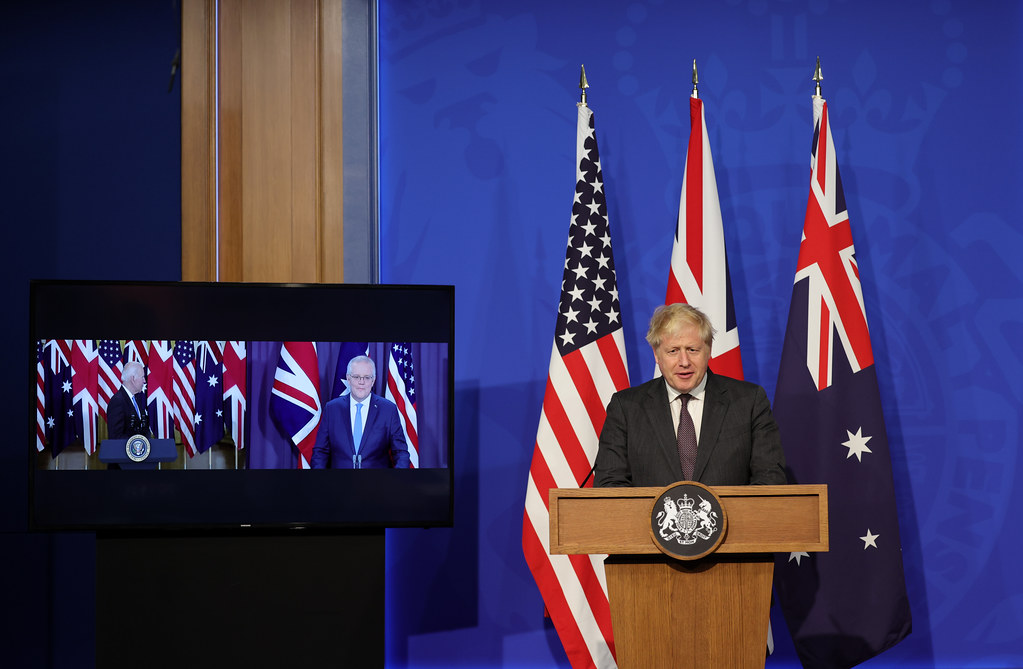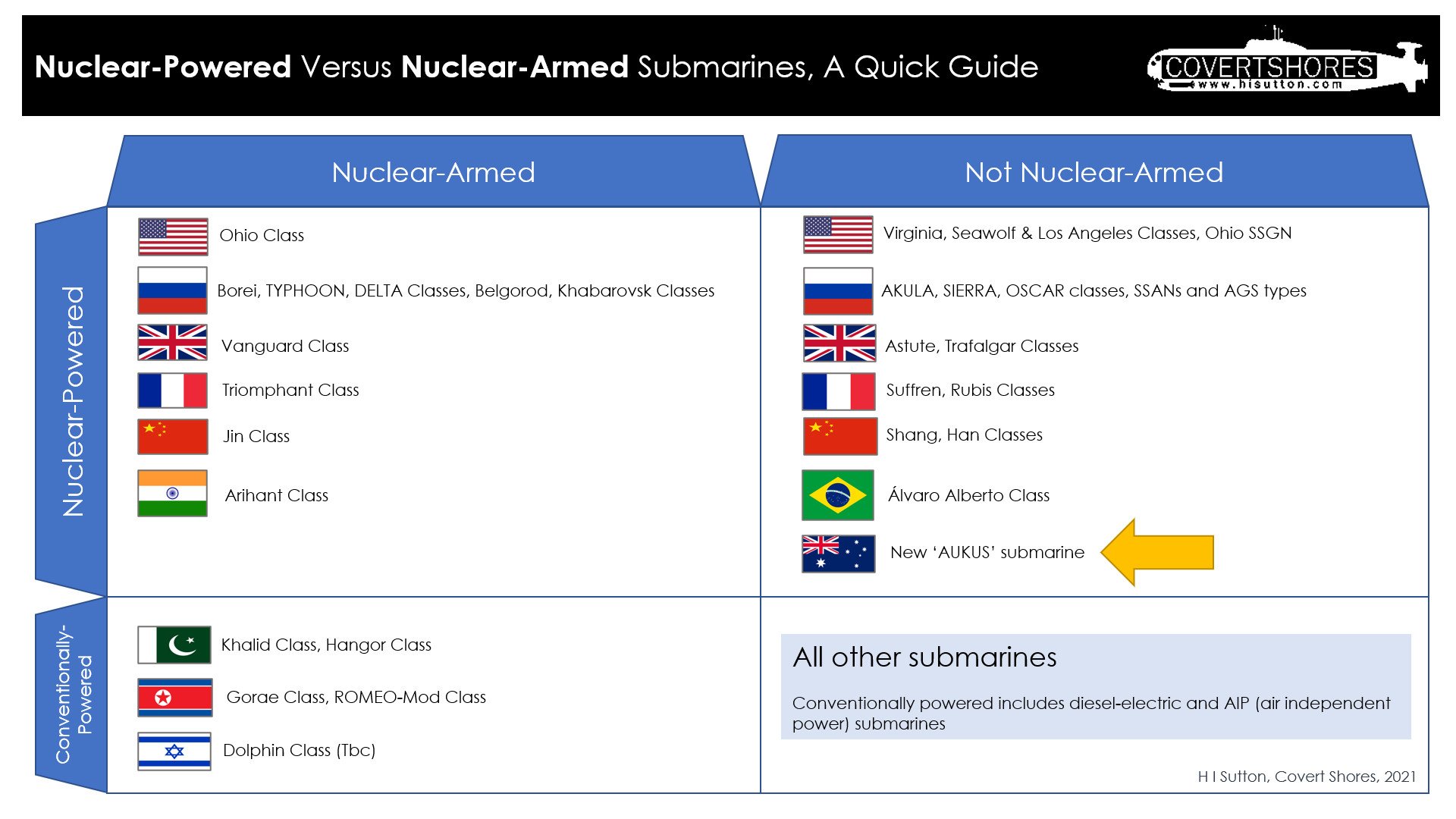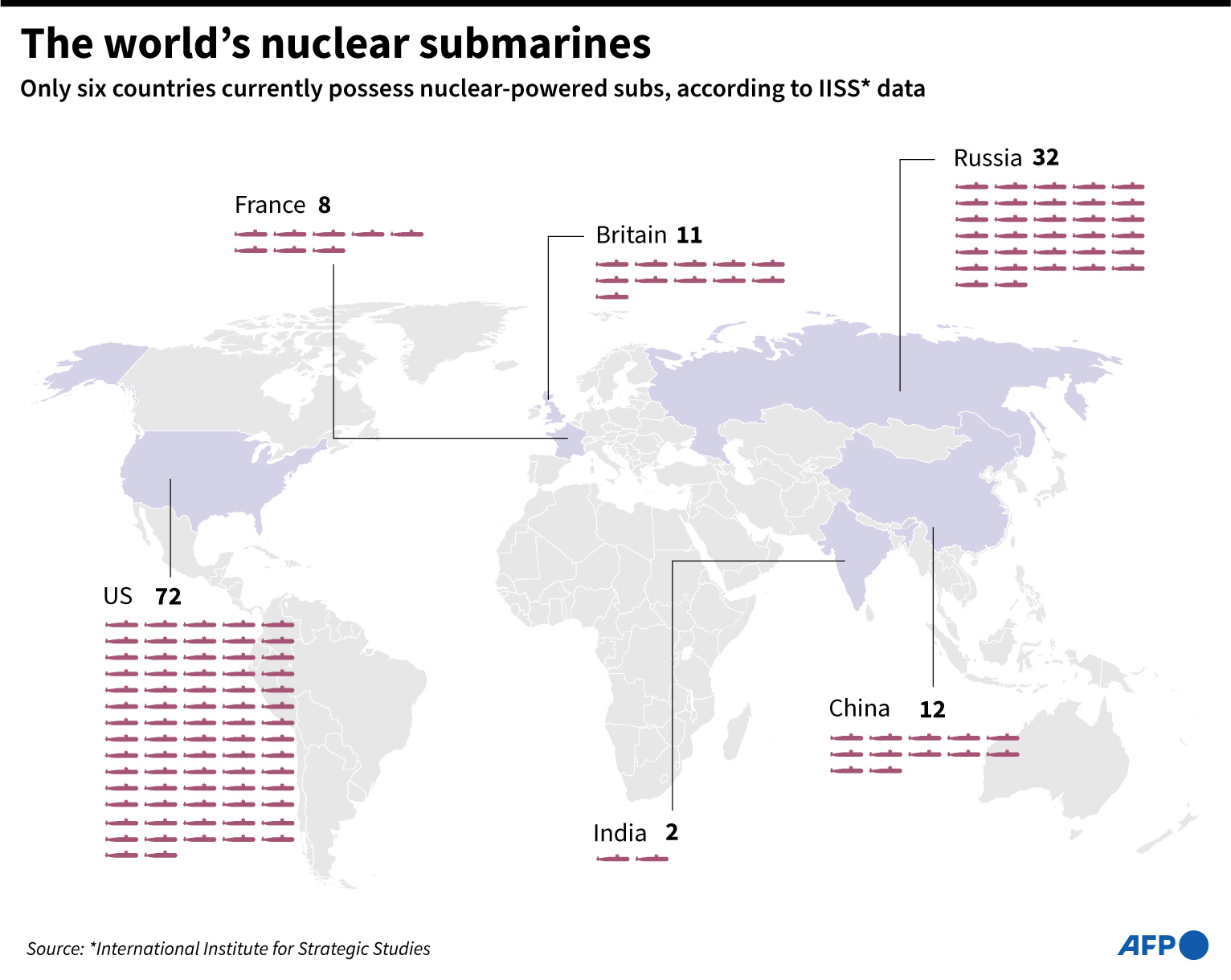
From LowyInstitute by Sam Roggeveen
It is extraordinary that this momentous decision could be made without parliamentary or public scrutiny.
 British Prime Minister Boris Johnson joins US President Joe Biden and Australian Prime Minister Scott Morrison at the launch of the AUKUS Partnership (Andrew Parsons/No 10 Downing Street/Flickr)
British Prime Minister Boris Johnson joins US President Joe Biden and Australian Prime Minister Scott Morrison at the launch of the AUKUS Partnership (Andrew Parsons/No 10 Downing Street/Flickr) It is extraordinary that this momentous decision could be made without parliamentary or public scrutiny.
The 18-month consultation process that Morrison has announced will focus on how the submarine agreement will be implemented, and not whether it is a good idea.
Many will now begin to consider the implications of this agreement for the wider region, even beyond how China will respond.
South Korea is already edging towards the development of an indigenous nuclear-powered submarine, and it would now be no shock to see Japan take the same course.
There are still many unknowns, including relating to reports that emerged late yesterday that as an interim measure, Australia would host US nuclear submarines in Western Australia until acquiring its own.
Does Australia actually need nuclear-powered submarines?
They would certainly be important assets in any allied effort to deter war with China or to defeat China if deterrence failed.
SSNs have the range and endurance needed for long-range operations together with the United States.
But because they are expensive, Australia can’t have very many, and given the sea approaches to Australia are vast and with many choke points that need to be patrolled, they are less useful for the defence of the continent.
So, if Australia believes it needs the capability to defend the Australian continent alone, then this is the wrong decision.
As already mentioned, this decision is a long-term bet on the endurance of the alliance, and on the likelihood that the US has the resolve to stay in Asia.
It is also worth saying that these submarines will be largely dependent on US and UK nuclear know how.
All the talk of recent years about Australia acquiring “sovereign” capabilities that can operate independently has gone out the window.
We had better hope that our defence and foreign policy priorities remain closely aligned with these two partners.
Links :
- CNN : Biden and UK to help Australia acquire nuclear-powered submarines in new pushback on China / Australia had 'deep and grave' concerns about French submarines' capabilities, PM says
- AP News : Australia: Strategic shifts led it to acquire nuclear subs
- NYTimes : Biden Announces Defense Deal With Australia in a Bid to Counter China
- Reuters : France says Biden acted like Trump to sink Australia defence deal / Australia to build eight nuclear-powered submarines under new Indo-Pacific pact
- Forbes : U.S. Will Help Australia Build Nuclear Submarines In New Deal Countering China
- The Guardian : Australia could initially lease submarines from UK or US but nuclear weapons remain off limits / Australian nuclear submarine plan ‘wrong direction at the wrong time’, Nobel prize-winning group says / US, UK and Australia forge military alliance to counter China
- The Times : Is the West entering a Cold War with China?
- AlJazeera : How a submarine deal sparked a major diplomatic crisis
- SCMP : Why is Southeast Asia so concerned about Aukus and Australia’s plans for nuclear submarines?
- FT : Beijing confronts new regional challenge after Australia defence deal / The nuclear technology behind Australia’s Aukus submarine deal
- The Diplomat : The Strategic Symbolism of Australia’s Nuclear Subs
- CSBA : Gateway to the Indo-Pacific: Australian Defense Strategy and the Future of the Australia-U.S. Alliance





The Guardian : Will all submarines, even nuclear ones, be obsolete and ‘visible’ by 2040?
ReplyDelete